Owning a pit bull comes with unique considerations, especially when it comes to public spaces like dog parks. Many pit bull owners wonder, Can you take your pit bull to a dog park? The answer, unfortunately, isn’t always straightforward. This comprehensive guide delves into the complexities of bringing your pit bull to a dog park, addressing the risks, responsibilities, and alternatives to ensure both your dog’s well-being and the safety of others. We’ll explore breed-specific legislation, dispel common myths about pit bull temperament, and offer practical tips for navigating dog park etiquette, from leash training to recognizing canine body language. Whether you’re seeking safe socialization opportunities or simply want to understand the rules surrounding pit bulls in public spaces, this article provides valuable insights for responsible pit bull ownership and enjoyable park experiences.
Understanding the Risks and Responsibilities
Taking your pit bull to a dog park, like with any breed, requires careful consideration of various factors. While these parks can offer wonderful opportunities for socialization and exercise, responsible ownership hinges on acknowledging potential risks and fulfilling your responsibilities.
Breed Specific Legislation and Dog Park Rules: Navigating Restrictions and Finding Welcoming Spaces
Unfortunately, pit bulls often face prejudice due to breed specific legislation (BSL) and breed restrictions enforced by some dog parks. BSL refers to laws that regulate or ban certain dog breeds, often targeting pit bulls. These laws are often controversial and based on misconceptions rather than scientific evidence.
Before heading to a dog park, it is crucial to:
* **Research local regulations:** Check your city or county’s website for information on BSL or breed restrictions in public spaces. Contact dog parks directly to inquire about their policies regarding pit bulls.
* **Respect park rules:** Adhere to all posted rules, including leash laws, vaccination requirements, and off-leash areas designated for specific sizes or temperaments.
* **Seek out welcoming spaces:** Look for dog parks that prioritize responsible ownership over breed stereotypes. Online forums or local pit bull advocacy groups can offer insights into inclusive parks in your area.
Remember, responsible owners of all breeds contribute to safe and enjoyable dog park experiences. Advocate for fair treatment of all dogs and promote positive perceptions of pit bulls through your responsible actions.
Pit Bull Temperament and Socialization: Dispelling Myths and Ensuring Responsible Ownership
Pit bulls, like any breed, possess unique temperaments influenced by genetics, upbringing, and socialization. It is crucial to debunk common myths surrounding the breed and focus on responsible ownership to ensure safe and enjoyable experiences for both your dog and others.
* **Debunking myths:** Pit bulls are not inherently aggressive. Their history as fighting dogs has unfortunately contributed to negative stereotypes. Like any breed, they require proper socialization, training, and responsible handling to thrive.
* **Early and consistent socialization:** Exposing your pit bull to various sights, sounds, people, and especially other dogs from a young age is paramount. Positive interactions during puppyhood help develop social skills and reduce fear or anxiety towards others.
* **Training and obedience:** Enroll your pit bull in obedience classes to teach basic commands, leash manners, and impulse control. A well-trained dog is easier to manage in stimulating environments like dog parks.
By dispelling myths and prioritizing socialization and training, you can help your pit bull develop into a well-adjusted and sociable companion.
Liability and Safety Precautions: Protecting Yourself and Others at the Park
Taking your pit bull to a dog park, even where permitted, necessitates a heightened awareness of potential risks and legal liabilities. Protecting yourself and others requires proactive measures and a commitment to responsible dog ownership.
* **Liability insurance:** Consider obtaining liability insurance that covers dog-related incidents. This can provide financial protection in case of accidental injuries or property damage.
* **Close supervision:** Never leave your pit bull unattended at the park. Maintain visual contact and be prepared to intervene if necessary.
* **Recognizing stress signals:** Be attentive to your dog’s body language. Signs of stress, fear, or aggression (e.g., stiff posture, whale eye, lip licking) warrant immediate removal from the situation.
* **Knowing when to leave:** If your dog appears uncomfortable, overwhelmed, or overly aroused, it’s best to leave the park and try again another time. Prioritizing your dog’s well-being over forcing interactions is crucial.
By taking these precautions, you demonstrate responsible ownership and contribute to a safer and more positive environment for everyone at the dog park.
The #1 Free Source for Pitbull & Bully Pedigrees!
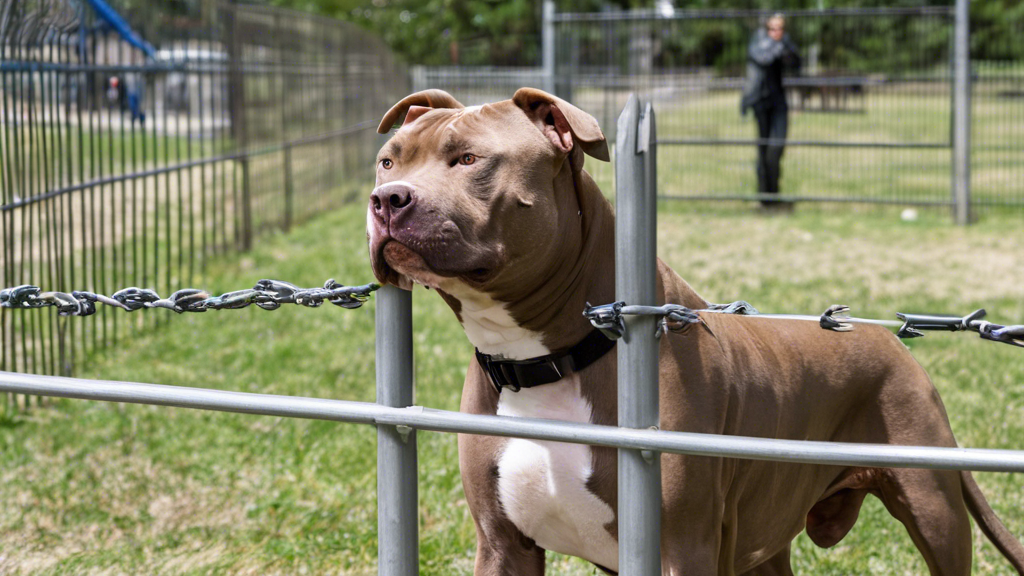
Alternatives to Dog Parks for Pit Bulls
While dog parks can be great for socialization and exercise, they aren’t always the best fit for every dog, especially pit bulls who may face breed restrictions or increased scrutiny. Thankfully, there are plenty of fantastic alternatives that can provide your furry friend with the same benefits in a safe and inclusive environment.
Private Dog Parks and Playgroups: Finding Secure and Inclusive Options
Private dog parks and playgroups offer a controlled and often membership-based environment that can be a fantastic alternative to public dog parks. These spaces often have stricter rules and screening processes, ensuring a safer and more predictable experience for all dogs and their owners.
- Benefits of Private Options:
- Controlled Environment: Limited number of dogs, often with size or temperament-based groups.
- Screening Processes: Many require vaccination records, temperament evaluations, or interviews to ensure a good fit.
- Reduced Risk of Breed Discrimination: Private facilities may be more welcoming to pit bulls and less likely to enforce breed-specific rules.
- Finding Private Dog Parks and Playgroups:
- Online Directories: Websites and apps dedicated to dog-friendly businesses often list private dog parks in your area.
- Local Pet Stores and Veterinarians: Ask for recommendations or check their community boards for information on local playgroups.
- Social Media Groups: Join breed-specific or local dog owner groups to connect with others and find private playgroups.
Organized Activities and Training Classes: Encouraging Socialization and Exercise in Controlled Environments
Engaging your pit bull in structured activities and training classes offers a fantastic opportunity to combine socialization with valuable skills development. These controlled environments provide a structured and supervised setting for dogs to interact and learn.
- Benefits of Organized Activities:
- Structured Socialization: Dogs interact under the guidance of experienced trainers, promoting positive interactions.
- Mental and Physical Stimulation: Activities like agility courses, scent work, or obedience training engage both mind and body.
- Bonding Opportunities: Working together in a class setting strengthens the bond between you and your dog.
- Finding Activities and Classes:
- Local Dog Training Facilities: Look for classes like basic obedience, agility, rally obedience, or scent work.
- Community Centers and Parks and Recreation Departments: Some offer dog-related activities or classes.
- Breed-Specific Rescue Organizations: These groups may offer specialized training or socialization events for pit bulls.
One-on-One Playdates and Enrichment Activities: Providing Safe and Engaging Alternatives
Sometimes, the simplest solution is often the best. Arranging one-on-one playdates with trusted dogs and incorporating enriching activities into your routine can fulfill your pit bull’s social and exercise needs without the uncertainties of dog parks.
- Benefits of Individual Play and Enrichment:
- Controlled Interactions: You choose playmates your dog is comfortable with, minimizing potential conflict.
- Tailored Exercise: Activities can be customized to your dog’s energy level and preferences.
- Strengthened Bond: Spending quality time together deepens your relationship with your dog.
- Arranging Playdates and Activities:
- Connect with Friends and Family: Reach out to people with well-socialized dogs who could be good playmates.
- Explore Your Neighborhood: Discover new walking paths, hiking trails, or dog-friendly beaches for off-leash fun in a controlled environment.
- Provide Enrichment at Home: Food puzzles, interactive toys, and backyard games offer mental and physical stimulation.
By exploring these dog park alternatives, you can prioritize your pit bull’s well-being while ensuring they receive the socialization, exercise, and mental stimulation they need to thrive. Remember, a happy and well-adjusted dog is a joy to have by your side, no matter where your adventures take you.
The #1 Free Source for Pitbull & Bully Pedigrees!
Liability and Safety Precautions: Protecting Yourself and Others at the Park
Taking your pit bull, or any dog, to a dog park comes with inherent risks and responsibilities. Being a responsible owner means understanding and mitigating these potential issues to ensure a safe and positive experience for everyone.
Legal Considerations:
- Breed Specific Legislation (BSL): Sadly, some areas have breed-specific legislation that restricts or prohibits pit bulls in public spaces, including dog parks. It’s crucial to research and understand the laws in your municipality before bringing your dog to any off-leash area. Websites for your local government or animal control are good resources.
- Dog Park Rules and Regulations: Every dog park has its own set of rules posted at the entrance. Familiarize yourself with these rules, which often include vaccination requirements, leash policies, and guidelines for dog handlers. Following these rules not only keeps everyone safe but also helps protect you legally in case of an incident.
Insurance and Liability:
- Pet Insurance: Consider investing in pet insurance that covers potential vet bills arising from unexpected incidents at the park. Accidents can happen, even with the most well-behaved dogs, and having insurance provides financial peace of mind.
- Liability Coverage: Check your homeowner’s or renter’s insurance policy to understand your coverage in case your dog causes damage or injury to another person or their pet. Some policies may have breed-specific exclusions or limitations, so it’s essential to be aware of your coverage limits.
Safety Precautions at the Park:
Taking proactive steps while at the dog park is vital for minimizing risks:
- Supervise Actively: Never leave your dog unattended at the dog park. Constant supervision allows you to monitor your dog’s behavior, interact appropriately with other dogs, and respond quickly to potential problems.
- Use a Secure Leash and Collar: When entering and exiting the park, always keep your pit bull on a secure leash. Use a well-fitted collar or harness designed for strength and durability to prevent escapes.
- Avoid High-Stress Situations: Be mindful of your dog’s stress levels. If the park is overcrowded, if there are many unfamiliar dogs, or if your dog appears overwhelmed, it’s best to leave and try another time or location.
- Bring Water and a Bowl: Dog parks can be thirsty places, especially on warm days. Pack a water bottle and a collapsible bowl to keep your dog hydrated.
- Clean Up After Your Dog: Always bring waste bags to clean up after your dog promptly. This practice is not only courteous but also prevents the spread of diseases.
By diligently researching legal requirements, understanding your liability, and following safety precautions, you can create a safer and more enjoyable experience for both your pit bull and others at the dog park. Remember, responsible ownership within these shared spaces is key to fostering a positive environment for all dogs and their humans.
Ultimately, the decision of whether or not to take your Pit Bull to a dog park is a personal one that requires careful consideration of various factors. While dog parks can offer valuable opportunities for socialization and exercise, it’s crucial to prioritize the safety and well-being of your dog, yourself, and others. Understanding and adhering to local regulations, being aware of your dog’s temperament and training needs, and practicing responsible ownership are essential. Exploring alternative options like private parks, organized activities, or controlled playdates can provide enriching experiences while minimizing potential risks. If you do choose to navigate the dog park environment, a cautious and observant approach, coupled with proper leash training and attentive supervision, will help ensure a positive and safe experience for everyone involved. Remember, responsible ownership and informed decision-making are key to fostering harmonious interactions between dogs and humans alike.







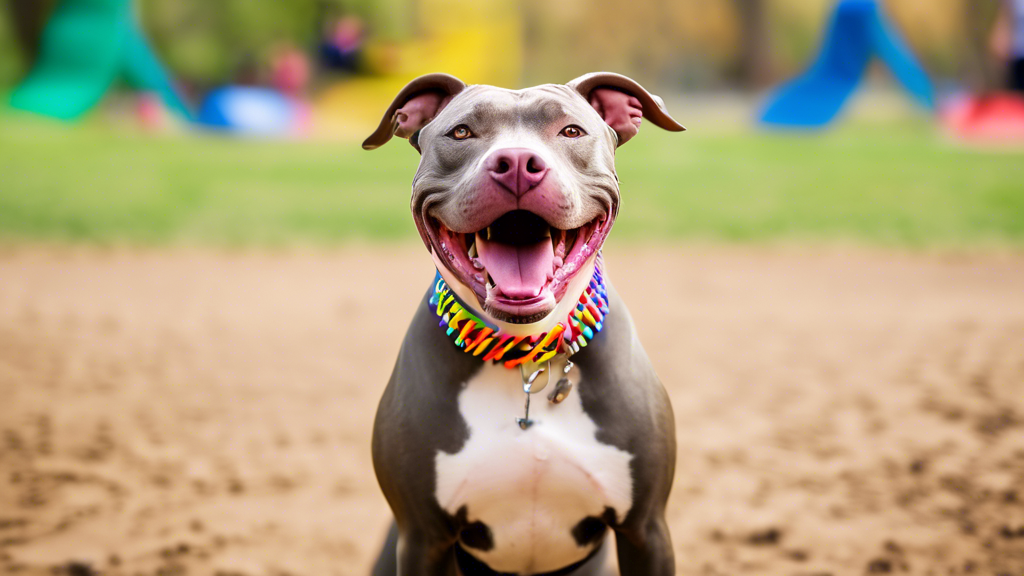
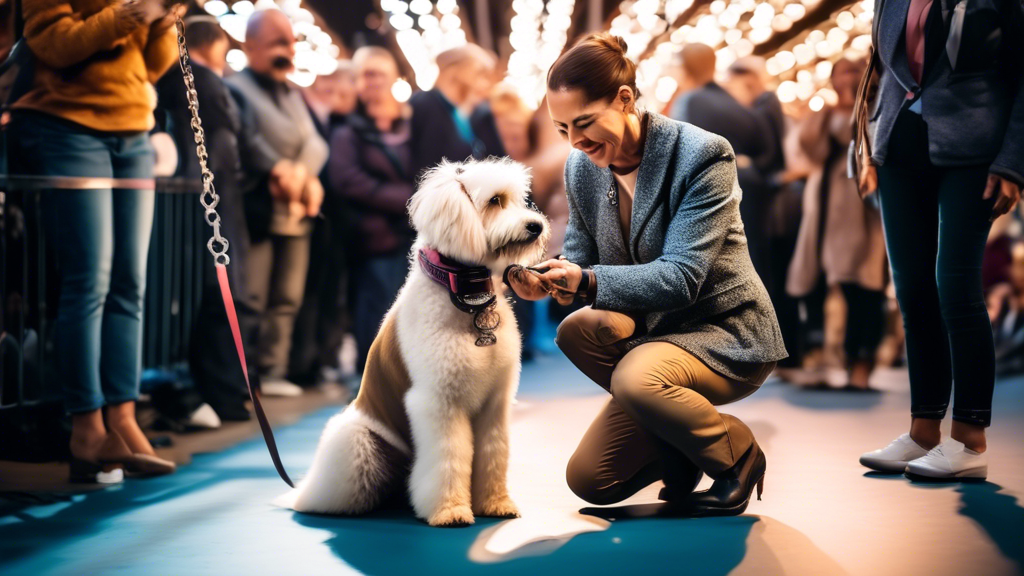
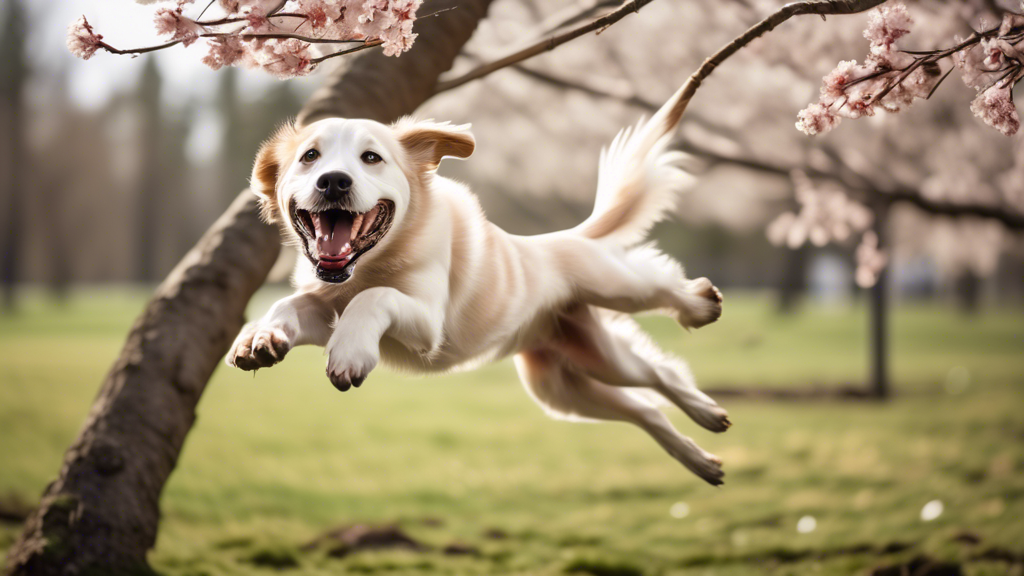
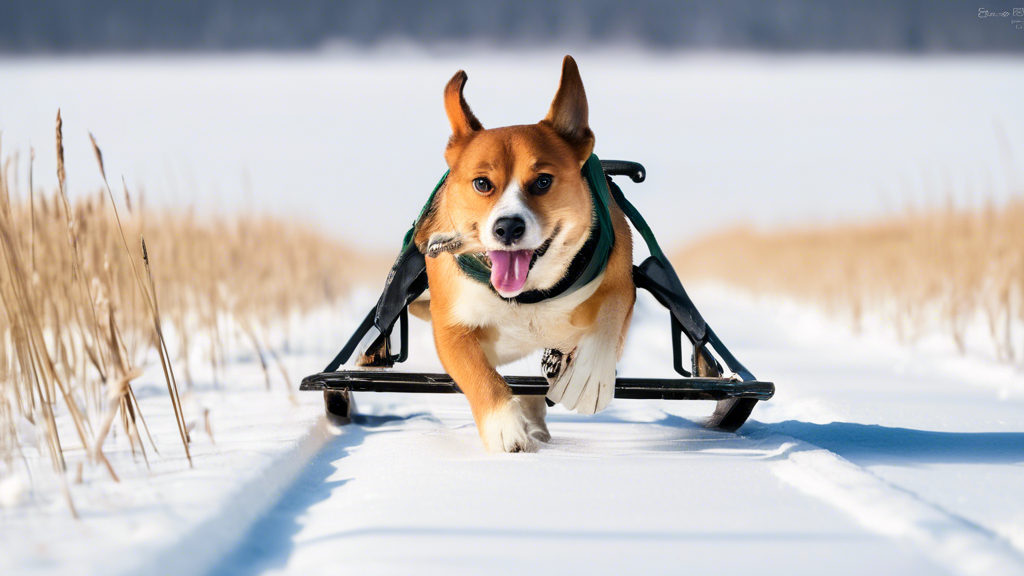

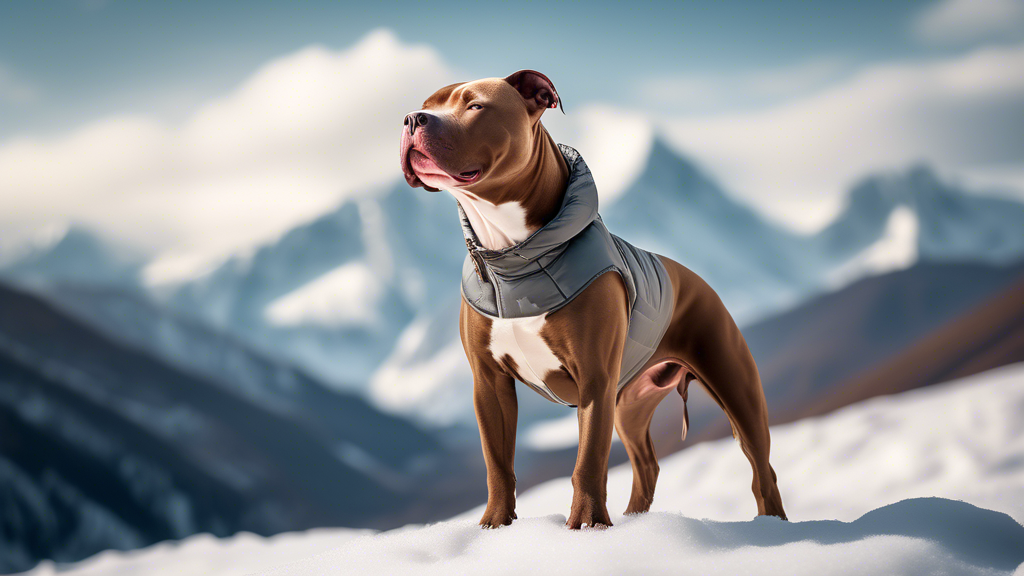
Leave A Comment